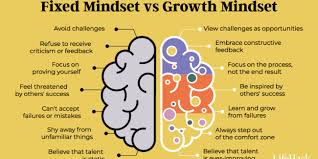How to Overcome Procrastination in Your Studies
Procrastination is a common challenge that almost every student faces. It’s the habit of delaying important tasks and choosing short-term comfort over long-term success. While it may feel satisfying in the moment to scroll through social media or binge-watch a show instead of studying, procrastination leads to stress, poor grades, and missed opportunities in the long run.
Overcoming procrastination is not about working harder—it’s about working smarter. With the right mindset and strategies, any student can beat procrastination and boost their productivity. This article will guide you through practical ways to eliminate procrastination from your study life and take full control of your academic goals.
Understanding the Root of Procrastination
Before overcoming procrastination, it’s essential to understand why it happens. Some common reasons include:
- Fear of failure: Students may avoid studying because they’re afraid they won’t perform well.
- Perfectionism: The desire to do everything perfectly can prevent students from starting.
- Lack of motivation: Without a clear reason to study, it’s easy to postpone tasks.
- Poor time management: Not knowing how to plan and organize time effectively leads to delays.
- Distractions: Phones, games, and other activities constantly interrupt focus.
By identifying the cause, students can create solutions that address their specific procrastination habits.
1. Set Clear and Realistic Goals
A major reason students procrastinate is because their goals feel overwhelming or unclear. Instead of saying, “I need to study everything,” break the task down into smaller, manageable parts. For example:
- “Read chapter 3 of the biology book”
- “Solve 10 math problems from exercise 5.2”
- “Revise history notes from yesterday’s class”
Clear goals give direction and help reduce the feeling of being lost or overburdened.
2. Create a Study Schedule
A well-planned routine makes it easier to start studying. Use a planner, calendar, or app to organize your day. Allocate specific time slots for different subjects and be realistic about how long each task will take. Don’t forget to add short breaks between sessions.
For example:
- 4:00 – 4:45 PM: Science revision
- 4:45 – 5:00 PM: Break
- 5:00 – 5:30 PM: Practice math problems
Consistency in routine trains your brain to follow a pattern, making procrastination less likely.
3. Use the Pomodoro Technique
The Pomodoro Technique is a time management method that helps you stay focused and avoid burnout. It works like this:
- Work for 25 minutes
- Take a 5-minute break
- After 4 cycles, take a longer break (15-30 minutes)
This method creates a sense of urgency and makes studying feel less exhausting. Short breaks keep your mind fresh and motivated.
4. Eliminate Distractions
Distractions are the biggest enemies of productivity. To overcome procrastination, create a study environment that supports concentration:
- Turn off phone notifications or use apps that block social media during study hours.
- Study in a quiet place with minimal noise and clutter.
- Inform family members or roommates not to disturb you during your study time.
The fewer the distractions, the faster you finish your work and the more free time you earn later.
5. Prioritize Your Tasks
When you have multiple things to do, it’s easy to put off the difficult or boring ones. But delaying them only increases anxiety. Instead, use the Eisenhower Matrix to prioritize:
- Urgent and Important: Do first
- Important but Not Urgent: Schedule it
- Urgent but Not Important: Delegate if possible
- Neither Urgent nor Important: Eliminate or delay
Tackling high-priority tasks first gives a sense of accomplishment and builds momentum.
6. Beat Perfectionism
Many students delay starting because they want everything to be perfect. Remember, starting something—even imperfectly—is better than doing nothing. Aim for progress, not perfection.
It’s okay if your first draft isn’t perfect or your notes are messy. You can always improve later, but only if you start now.
7. Reward Yourself
Incentives help you stay motivated. After completing a study goal, give yourself a small reward like:
- Watching a favorite show
- Eating a snack
- Going for a walk
- Chatting with a friend
These rewards train your brain to associate studying with pleasure, not punishment.
8. Stay Accountable
Accountability can push you to stick to your goals. You can:
- Study with a friend and set shared goals
- Share your progress with a family member
- Join online student communities for support
When others are aware of your goals, you’re more likely to follow through.
9. Visualize the Long-Term Benefits
When you feel like delaying your studies, remind yourself of why you’re studying in the first place:
- To get good grades
- To pursue a dream career
- To make your family proud
- To feel confident and prepared
Keep your long-term vision in mind. This perspective makes the short-term discomfort of studying more bearable and meaningful.
10. Be Kind to Yourself
Overcoming procrastination is a process. You may slip up sometimes, and that’s okay. Don’t punish yourself or give up. Instead, analyze what caused the delay, adjust your plan, and move forward.
Self-compassion encourages growth. The key is to improve one step at a time.
Conclusion
Procrastination is not a sign of laziness—it’s a habit that can be unlearned with the right strategies. By setting realistic goals, creating structure, managing distractions, and practicing discipline, students can overcome procrastination and become more productive and confident learners.
The earlier students learn to beat procrastination, the more successful they’ll be—not just in school, but in every area of life. With focus, patience, and persistence, any student can take control of their time and achieve their academic dreams.


